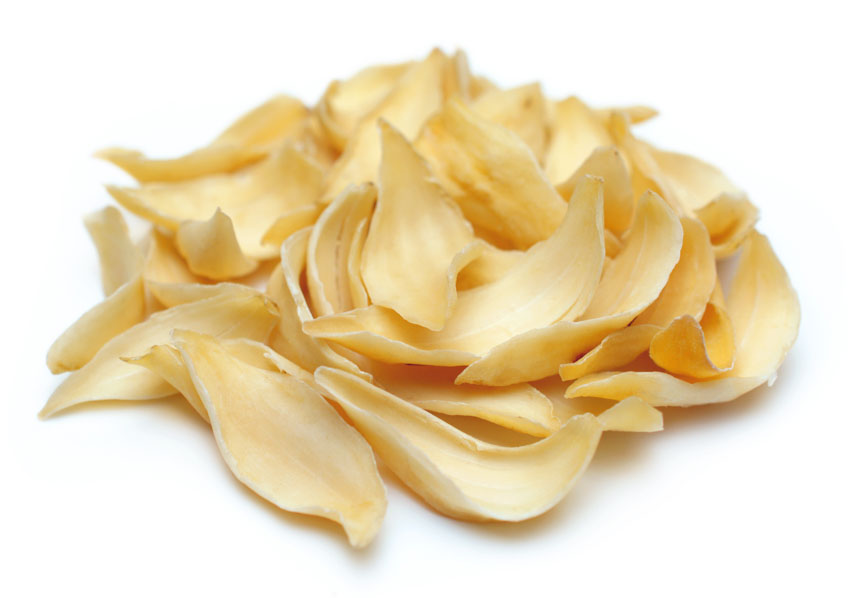
Chinese herbal medicine is an effective measure for the treatment of mental disorders. Independent investigations find Chinese herbal medicine effective for the reduction of symptoms associated with a type of mental illness, termed Bai He (百合) disease within the traditional Chinese medicine (TCM) system. Researchers note that Bai He disease directly correlates to the modern diagnostic term psychoneurosis. [1]
The name Bai He disease is used because of the effectiveness of the Bai He herb for the treatment of mental illness. Specific symptoms vary based on individual presentations. Common symptoms of Bai He disease include headaches, frequent mood swings, emotional volatility, anxiety, depression, insomnia, a bitter or dry sensation in the mouth, and dull pain in the abdominal area. Some patients also experience a sudden loss of appetite. [2]
According to traditional Chinese medicine (TCM) principles, various presentations of Bai He disease involve internal imbalances, including rising yang and deficient yin in the body. A modern correlate to this ancient principle is the presence of endogenous biochemical and metabolism imbalances. Other endogenous imbalances of heart and liver qi contribute to Bai He disease. External factors, such as weather changes and overwhelming stressful pressures, also create imbalances in the body’s natural rhythms and impair psychological defenses.
In a clinical study conducted at Tongzi Hospital of Traditional Chinese Medicine (Guizhou, China), 32 patients with Bai He disease (13 male, 19 female), ages 28–76, were given the Chinese herbal medicine formula Shu Gan Bai He. ECGs (electrocardiograms), ultrasound B-scans, and computerized tomography (CT) scans were used to screen for abnormalities as part of exclusion parameters for patients admitted to the study. The following were the ingredients of the herbal formula Shu Gan Bai He:
- Bai He (百合), 40g
- Chai Hu (柴胡), 25g
- Dang Gui (当归), 20g
- Bai Shao (白芍), 40g
- Mu Xiang (木香), 15g
- Bai Zhu (白术), 20g
- Qing Hao (青蒿), 10g
- Sheng Di (生地), 40g
- Huang Qi (黄芪), 40g
- Gan Cao (甘草), 10g
Additionally, for patients with obsessive mental alertness, Long Gu (龙骨) and Mu Li (牡蛎) were added. For patients suffering from headaches, Yu Jin(郁金) and He Huan Pi (合欢皮) were also put into the prescription. The ingredients serve to moisten the lungs, nourish the heart, and tonify the qi. Excess heat is reduced and therefore the yin-yang balance is restored.
Among the 32 patients, 14 patients recovered after 7 doses, 17 patients recovered after 10 doses, and one patient quit the treatment procedure due to personal reasons, yielding a total effective rate of 96.9%. [3] A determination of recovery was based on demonstration of significant clinical improvements.
Another herbal formula using Bai He as the chief herb is Bai He Da Zao. This formula was used in an investigation of intractable cases of Bai He disease at two hospitals in Beijing. The sample was composed of 25 males and 31 females, with a disease duration of 1 to 5 years, and all patients experienced significant improvement following the herbal medicine treatment. Prior to the treatment, the majority of the patients had already taken oryzanol, vitamins, and valium; however, the symptoms persisted. At the two Beijing hospitals, researchers classified the patients in the sample group as post-disease excessive heat type or over-worrying depression type. Patients were treated with the following ingredients:
- Bai He (百合), 12g
- Sheng Di (生地), 15g
- Gan Cao (甘草), 6g
- Huai Xiao Mai (淮小麦), 15g
- Da Zao (大枣), 10g
For patients experiencing an excessive thirst sensation, Gua Lou Gen (瓜蒌根), Zhi Mu (知母), and Sha Shen (沙参) were added. For all patients, two doses were taken, one in the morning and one in the evening. Treatment lasted for 20 to 80 days, depending on the severity. Outcome measures for the study included recovered (symptoms eliminated), effective (symptoms reduced 80%), ineffective (symptoms aggravated or remained). After completion of the herbal medicine regimen there were 20 recovered cases, 28 effective cases, and 8 ineffective cases, yielding a total effective rate of 85%. [4]
The results of the aforementioned studies show that using Chinese herbal medicines, such as Bai He (a type of lily), can be part of an effective solution for the treatment of certain mental illnesses. Licensed acupuncturists often incorporate this herb into herbal formulas for the treatment of insomnia, irritability, mental restlessness, palpitations, chronic coughing, and chronic low grade fevers. According to TCM principles, Bai He (Lilii Bulbus) is a yin tonifying herb that is cool, sweet, slightly bitter, and enters the heart and lung channels. Bai He nourishes and moistens lung yin, clears lung heat, and stops coughing. Bai He calms the spirit, indicating this herb is beneficial for patients with mental illness treatment needs.
References:
[1] Shi Shasha, Zhou Yongxue. An analysis of the name and treatment of the Baihe disease in Jingui Yaolve, Clinical Journal of Chinese Medicine 2019 Vol.(11) No.2.
[2] Shi Shasha, Zhou Yongxue. An analysis of the name and treatment of the Baihe disease in Jingui Yaolve, Clinical Journal of Chinese Medicine 2019 Vol.(11) No.2.
[3] Ziuyong, Clinical observation of treating 32 cases with Bai He (百合) disease with Shugan baihe Chinese herbal formula. Yunnan Traditional Chinese Medicine and Herbal Medicine Journal, 2009,0705.
[4] Yang Weihua, Sun Zhenxia, Xie Jingxu, Clinical observation of treating 56 cases with Bai He (百合) disease with Baihe Dazao Chinese herbal formula.Beijing Traditional Chinese Medicine, 1999,03.


